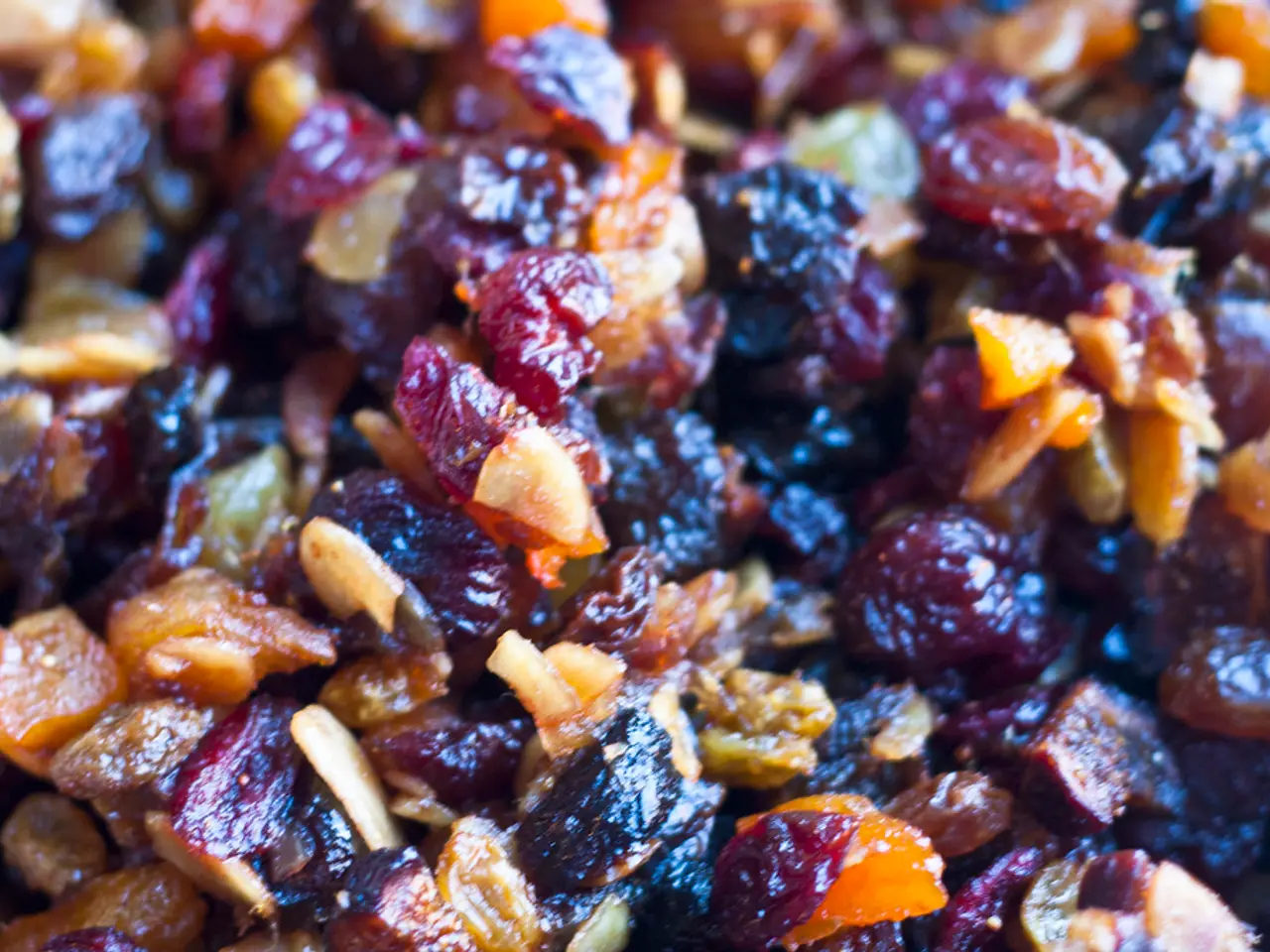Replacing Unhealthy Ingredients in Everyday Meals for Nutritious Alternatives
In the quest for a healthier lifestyle, making small changes in your everyday cooking can have a profound effect on overall health. Here are some simple ingredient swaps that add nutrients, reduce calories, or lower unhealthy fats and sugars, all while maintaining or enhancing flavour.
Dressings and Dips
Swap store-bought salad dressings, often laden with sugar, unhealthy fats, and artificial ingredients, for homemade options made with olive oil, balsamic vinegar, lemon juice, and a touch of mustard or honey. These heart-healthy dressings are not only delicious but also rich in monounsaturated and polyunsaturated fats, which help reduce inflammation and improve cholesterol levels [4].
Dairy Substitutes
Greek yogurt is a versatile ingredient that can be used in anything from dips to baked potatoes to dressings. As a healthier alternative to sour cream or mayonnaise, it adds protein and probiotics without excess fat [5].
Flour and Sugars
Replace all-purpose flour with whole wheat pastry flour or oat/almond flour for baking to boost fibre and protein, and lower the glycemic load [2][3]. Swap cane or brown sugar for coconut sugar to reduce sugar spikes with a low-glycemic alternative [2]. Instead of refined sugar, natural sweeteners like honey, maple syrup, or stevia can be used in cooking.
Fats and Oils
Use unsweetened applesauce, mashed avocado, or Greek yogurt instead of oil or butter in baking to reduce calories and add healthy fats [1][3]. Opt for olive oil, avocado oil, and coconut oil, which are rich in monounsaturated and polyunsaturated fats, over unhealthy trans fats [4].
Protein Sources
Lean proteins like chicken breast, turkey, fish, tofu, or legumes are healthier options than fatty cuts of meat. Tofu and beans are excellent plant-based protein sources that are lower in fat but high in protein, fiber, and other essential nutrients [6]. Nuts, seeds, fatty fish, and chia seeds are great sources of healthy fats that support brain function, hormone regulation, and heart health [3].
Texturising Agents
Use ground nuts or seeds or rolled oats in place of breadcrumbs for gluten-free or lower-carb options that add nutrients and texture [1].
Plant-Based Milks
Plant-based milks like almond milk, oat milk, coconut milk, and cashew milk can be used in place of cream in many recipes, offering a lighter, lower-calorie option with a variety of flavors. These milks are often fortified with vitamins and minerals like calcium and vitamin D [7].
By implementing one or two such substitutions routinely, you can improve overall health without sacrificing taste. Making small, strategic nutritional swaps in daily cooking can contribute to better heart health, improved digestion, sustained energy levels, and better mental clarity. However, it's essential to find balance when making nutritional swaps, starting by replacing one ingredient at a time and gradually incorporating healthier options into your routine [8].
- Homemade salad dressings, made with ingredients like olive oil, balsamic vinegar, and mustard, offer heart health benefits by reducing inflammation and improving cholesterol levels.
- Greek yogurt, used as a substitute for sour cream or mayonnaise, adds protein and probiotics without excess fat.
- Replacing all-purpose flour with alternatives like whole wheat pastry flour or oat/almond flour in baking can boost fibre and protein, and lower the glycemic load.
- Opting for unsweetened applesauce, mashed avocado, or Greek yogurt instead of oil or butter in baking can reduce calories and add healthy fats.
- Nuts, seeds, fatty fish, and chia seeds are great sources of healthy fats that support brain function, hormone regulation, and heart health.
- Plant-based milks like almond milk, oat milk, and cashew milk can be used in place of cream in many recipes, offering a lower-calorie option with a variety of flavors.




